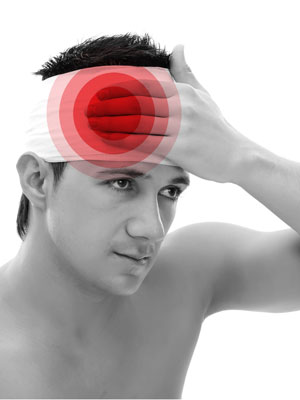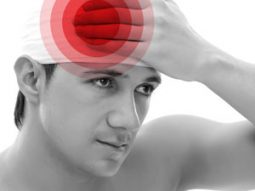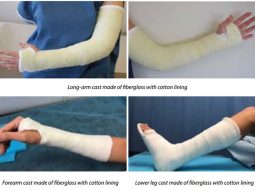
What is a minor head injury?
The most common type of minor head injury is concussion. Concussion may be associated with loss of consciousness (a “blackout”). This is often brief and is normally followed by a rapid and complete recovery.
What causes a minor head injury?
The skull and facial bones are hard and they protect the brain, which is soft. If these bones are injured then the brain becomes more vulnerable.
When someone has a knock to the head, their brain moves about and can hit the skull and facial bones, which may cause bruising and cause a person to “black out”. Sometimes there can be a skull fracture (although this is rare with a mild head injury).
What are the symptoms?
A person with a minor head injury may have bruising, swelling and bleeding anywhere around or inside the brain. These symptoms will vary, depending on how the injury happened. Some people will “black out” for a short period. Some people are confused about where they are and what has happened. It is common to have a headache, nausea, vomiting and mild dizziness or slight sleepiness.
Treatment and Investigations
While in the emergency department, you will be closely monitored and may have:
- Mild painkillers for headache or pain
- The person may be fasted – nothing to eat or drink until further advised
- Anti-nausea tablets for any nausea or vomiting
- A CT scan of the brain, neck or bones (if needed)
- An x-ray of the neck if there is neck pain or a suspicion of neck injury
INSTRUCTIONS
You did not have a CT scan of your brain because it was determined that it was not needed at this time.
You had a CT scan of your brain and no injury was identified.
The staff who have examined you did not find any serious brain or skull injuries. It has been deemed safe for you to go home but you may still have had an injury to your brain and it is possible for more serious symptoms to develop later on.
We suggest that you limit certain activities.
Take time off from work or school for ________ days. Please ask for a sick leave certificate for work if needed.
- Rest quietly for the day, avoid stressful situations
- Do not return to work or school until fully recovered.
- Do not stay alone for the next 24 hours.
- Do not drive a motor vehicle or operate machinery for at least 24 hours after your accident
- Do not eat or drink for the first six hours (unless advised otherwise by the doctor). Then take food and drink in moderation
- Do not drink alcohol until you are completely recovered
- Do not take sedatives or other medication unless instructed
- Use ice packs over swollen or painful areas. To do this wrap ice cubes or a sports ice pack in a towel. Do not put ice directly on the skin.
- Take simple painkillers (such as paracetamol) for any headache.
- If you have been discharged from hospital in the evening, make sure you are woken several times during the night. Your family or friends must ensure you walk to the toilet or do an activity that allows them to assess your coordination – can you walk and talk?
- Do not return to sport until all symptoms have gone and do not play any contact sports for at least 3 weeks and without talking to your doctor first. This is because your reaction times and thinking will often be slower, putting you at risk of further injury. It is important to avoid another head injury before fully recovering from the first, as a second injury can cause additional damage.
What to expect
Many people cannot remember events before or after their head injury (amnesia).
It can take some time for the brain to recover. During this time headaches and mild cognitive problems (such as difficulty concentrating, remembering things, performing complex tasks, and mood changes) are common. It is also normal to feel more tired than usual.

These “post-concussive” symptoms can be part of the normal healing process and are generally not signs of permanent damage or serious health problems. Most people make a full recovery and the symptoms last only a few days. There is no specific treatment other than plenty of rest.
Some people will have ongoing problems. If this is the case, see your doctor
When should I return to the hospital emergency department?
Sometimes serious problems develop after a head injury. Return immediately to the emergency department if you experience any of the following symptoms:
- Unconsciousness or undue drowsiness
- Frequent vomiting
- Severe headache or dizziness that gets worse and does not go away
- Convulsion or fit or spasms of the face or limbs
- Unusual or confused behaviour
- Difficult to wake up
- Weakness of the arms or legs
- Abnormal or unsteady walking
- Slurred speech
- Blurred or double vision
- Bleeding or discharge from ear or nose
Most of all, if you have any symptom that concerns you, your family members, or friends, don’t delay, see a doctor right away.
Seeking help
In a medical emergency: call (028) 54 11 35 00 or go to the Accident and Emergency department of FV Hospital at 6 Nguyen Luong Bang, district 7, HCMC

 Vi
Vi 












